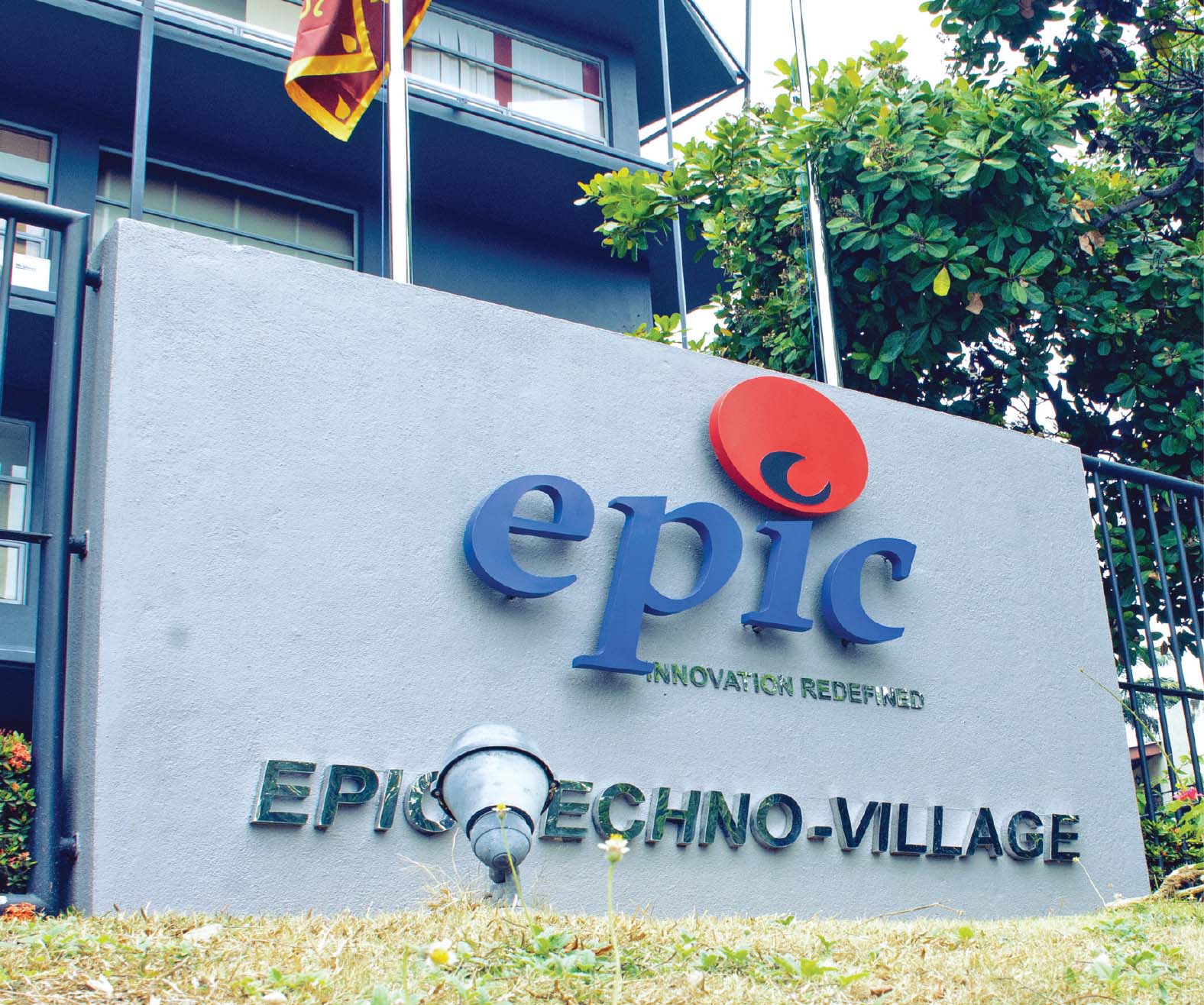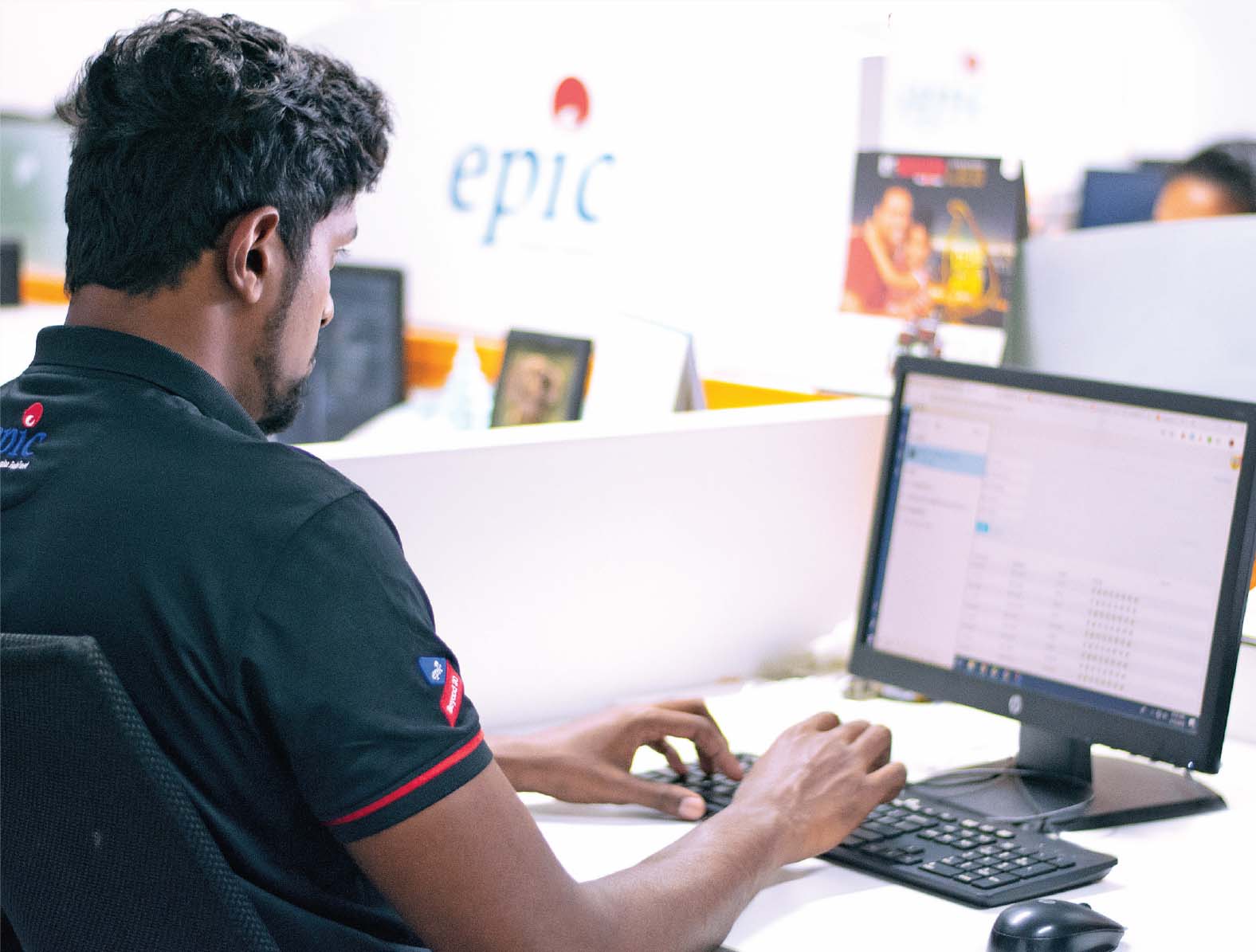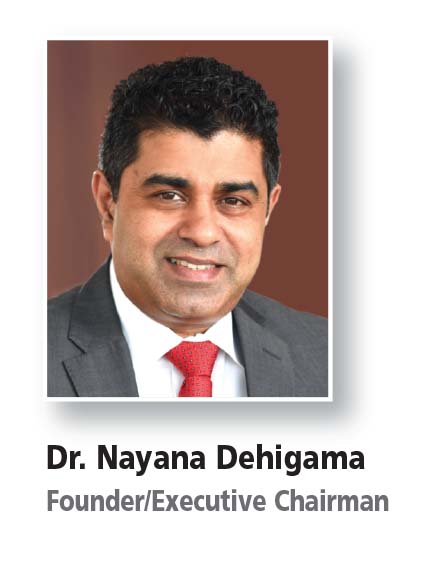EPIC TECHNOLOGY GROUP
Empowering Sri Lanka through Digital Transformation
Q: Could you describe Epic Lanka’s beginnings?
A: Epic Lanka traces its beginnings back to 1998 when I was struck with the idea of launching a business in the electronic payments and internet commerce space. The company’s name is derived from the first letters of these four key words, which spell ‘epic.’
Epic Lanka soon diversified into other strategic technology domains such as information systems security, mobile applications and enterprise digital transformation. Today, it has grown into one of Asia’s most influential brands in the fintech and digital transformation domains.
Q: What are Epic Lanka’s strengths and opportunities for growth?
A: Our main strength lies in employees who are passionate, talented and committed to innovation, as well as customers and technology partners. Being agile and keeping pace with changing technology and standards – both local and global – are additional strengths.
Always striving to remain a step ahead of our competitors, we look to offer the best in the era as a technological conglomerate should.
Moreover, we operate in a market with endless opportunities limited only by our imagination. As the world transforms digitally at an exponential speed, never-ending opportunities evolve for companies like ours to develop disruptive technologies to address new market requirements. Today, people and organisations are more willing to adopt digitalisation than ever before. This creates
a huge opportunity for us to serve every industry domain and market vertical by offering digital transformation solutions.
Q: What new trends can we expect in the industry because of digital transformation and the possible benefits?
A: Digital transformation has been around for the past few decades although it is discussed more actively today. Its disruption is seen across every sector.
As mobile and social networks promote and facilitate customer and business interactions especially on digital platforms, people and organisations are beginning to realise that no business can survive today without transforming digitally.
Therefore, the current trend is to transform every process and activity into digital – a trend that’s here to stay. Digital transformation offers enriched customer experiences while paving the way for endless possibilities to enhance life experiences. Some core benefits that we seek from this process include convenience, speed, reach, scale and value.
However, most of us get lost in the extensive technology jargon associated with it – i.e. IoT, cloud computing, edge computing, big data analytics, 4G and 5G broadband connectivity, augmented reality, VR, AI, blockchain, cryptocurrencies, bitcoin and so on.
It is essential to pick the most appropriate technologies based on the core needs to be fulfilled.
I strongly believe that technology shouldn’t be one’s master. Instead, it needs to be controlled by usto achieve our objectives in life.
Q: How would you describe the competition and what strategies do you employ to stay ahead?
A: Competition exists in every business and we consider it a blessing because it motivates us to be better without compromising on quality or standards. Epic Lanka’s services and offering are unique, and we employ strategies of ‘visioning’ and ‘futuring’ to stay ahead.
Visioning refers to predicting possible future trends based on weak signals in the market while futuring means preparing early to exploit opportunities when those signals become stronger and trends mature.
It all boils down to being vigilant in the market – understanding new trends, technologies, customer needs and competitors’ moves – to make proactive decisions for our own advantage.
Q: What are the main challenges confronting the IT industry?
A: One of the major challenges we face is the insufficient supply of engineering and development resources. I believe that Sri Lanka does not produce enough software engineers to cater to market demand.
Additionally, there is a lack of domain experts as most universities produce generalists and not specialists. Specialisation training calls for more time, effort and money, and all this has adversely impacted the industry.
Another challenge that the industry encounters is the poaching of skilled employees by certain companies for short-term projects instead of training their own resources. Software engineers are lured with higher and sometimes unrealistic remuneration, thereby resulting in losses for the companies that invested in the training and capacity building of such employees. Therefore, the cost of retaining skilled engineers with domain expertise has shot up rather drastically.
Q: So what does the future hold for Epic Lanka?
A: Our ultimate aim is to become a global brand by creating and providing state-of-the-art technology solutions.
We’ve already embarked on this journey by establishing operations in Japan, Singapore and Malaysia where our products have been well-received. Moreover, Epic Lanka has also established partnerships in a few other countries in the region. And we believe that we’ll be able to realise our dream of going global soon.







